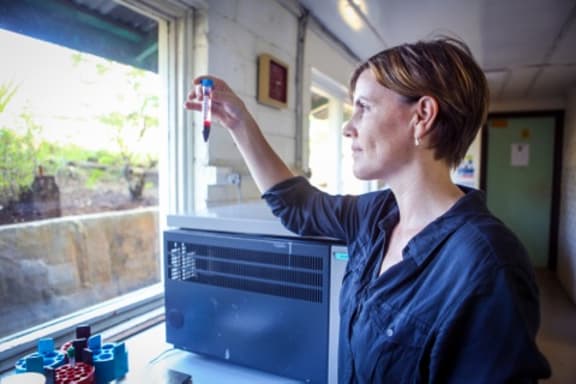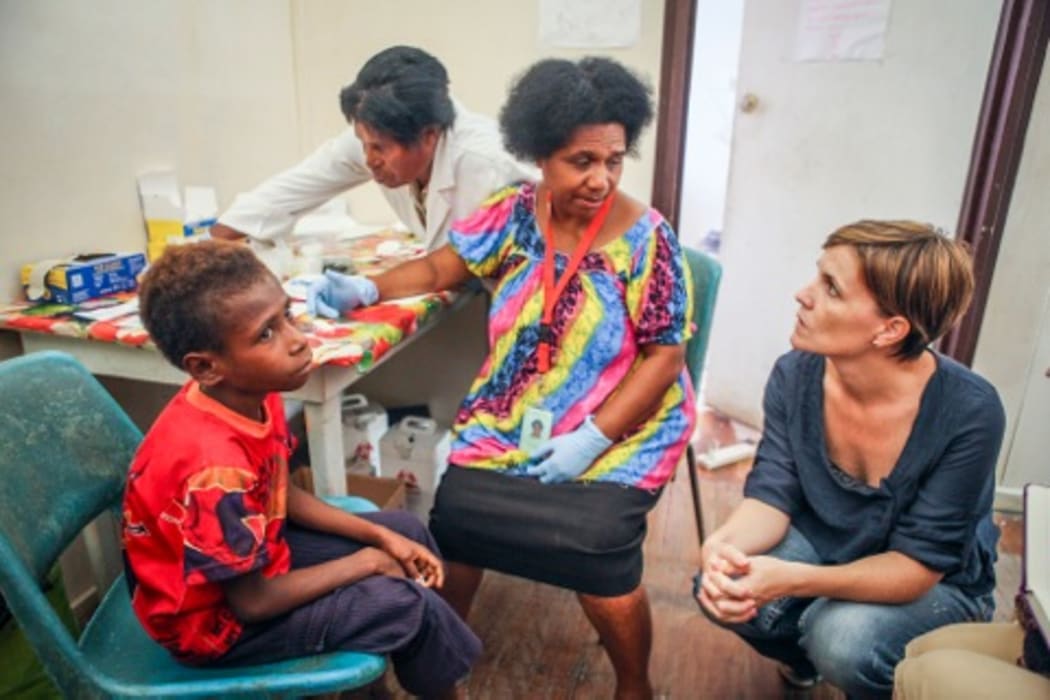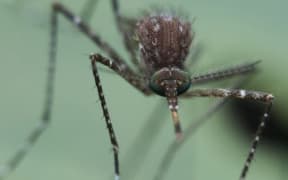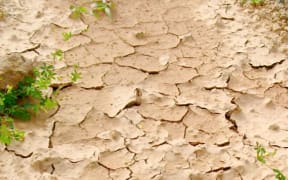Scientists in the region are setting their sights on the parasite Plasmodium Vivax as the key to realising the Pacific's aim to eradicate Malaria.

Dr Leanne Robinson with a blood sample in the Papua New Guinea Institute of Medical Research Lab. Photo: Mayeta Clark/Walter and Eliza Hall Institute
Recent research conducted by the Walter and Eliza Hall Institute in Melanesia has revealed that Plasmodium Falciparum the other malarial parasite common in the Pacific has been all but wiped out in the region.
But Plasmodium Vivax remains prevalent because of its ability to lie dormant in the liver for up to four years before reinfecting its host and starting another wave of transmission to other human beings via mosquitoes.
The Institute's head of Population Health and Immunity, Ivo Mueller, says the solution his team is offering is mass treatment of infected communities, starting with the development of a test to identify carriers of dormant malarial parasites.
"That could help us detect the people that are likely to have these liver stages. And if the development of this test works and it performs the way we think then we could target people directly with treatment and people we know have these liver stages."
Mr Mueller says the testing is also important because the only medication available for malaria in the liver is a 60-year-old drug called Primaquin, which can cause anaemia.

Dr Leanne Robinson (far right) with patient Jonathan (far left), who is being tested for malaria by Nursing Officer Kay Kose (second from left) and microscopist Barbara Sambre (second from right) in Papua New Guinea. Photo: Mayeta Clark/Walter and Eliza Hall Institute



